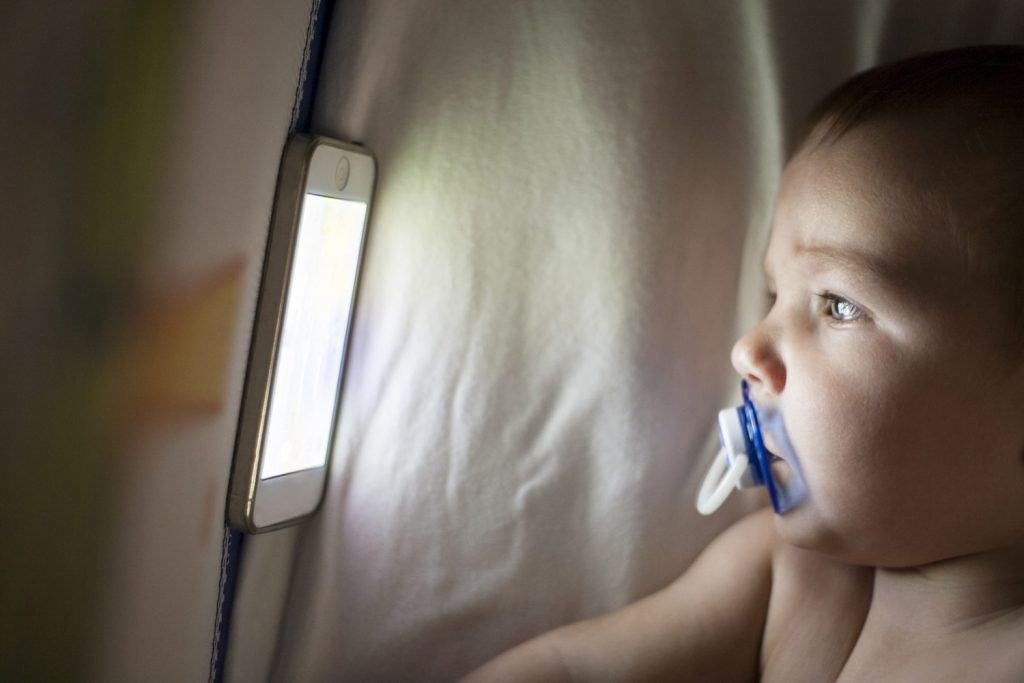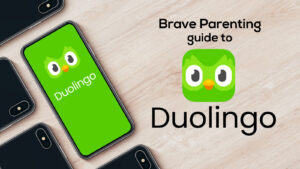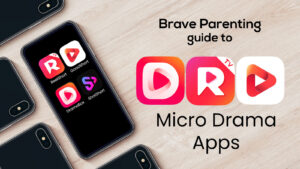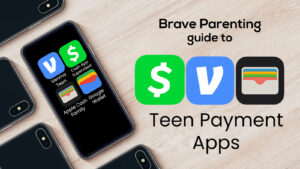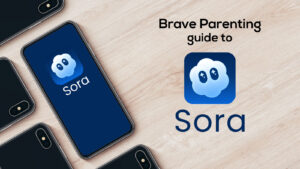A recent study found that 97% of US children have used a mobile device, most of which began before the age of 1 year old. By 2 years old children are using a device daily; by age 3 they are using devices completely on their own, with one-third of these 3 year olds multitasking with other sources of media; and by age 4 the majority of children have a device designated as their own.
Are you shocked? These facts probably having you nodding your head and thinking “yep, really not too surprising.”
We lack a standard. As Americans, Humans, Parents, Christians – however you define “us” – we lack a standard for media and smart devices.
Everyone is doing what feels commonplace, natural, and what is easy when it comes to media allowances for children. Too often this is done without consideration of age, brain development, priorities, character, and responsibilities. A sweeping assumption would be that parents are just rolling with it saying ‘this is how the world is now’.
There has been a significant amount of research over the past decade correlating early media exposure and stimulation with ADHD, learning abilities, and risky behaviors. Yet, our parenting standards for media haven’t improved. If anything, the standard has become worse.
We’re forced to ask, Is this because parents don’t know about this research? Do they not care about these risks? Have they forgotten their own childhood playing outside instead of staring at a screen?
Allow the following video to enlighten you.
5 Parenting Standards for Toddlers and Media
[1] Limit Passive Television Consumption
As early as 1- 2 months children can begin taking in the lights and sounds of television as stimulation. Studies have proven young children learn best through unstructured play and human interactions. Passive television (on in the background) can distract the parent and the child from engaging in this important connection. Additionally, infants may stare at the bright colors and motion on a screen, but their brains are incapable of making sense or meaning out of the strange things they see. It takes 2 full years for a baby’s brain to develop to the point where the symbols on a screen come to represent their equivalents in the real world.
Instead of television in the background, consider some music or even an audio book, whether it play throughout the room or in 1 ear bud. Or better yet, sing to your child or tell stories so they can hear your voice and emotion.
[2] Limit Active Television Consumption
As seen in the video, active television watching of educational programming is not associated with an increased risk of brain alterations. Did you see the Mr. Rogers clip from the 80’s in comparison to some of the visually assaulting things kids see now?
The key is moderation. Toddlers can occasionally handle a 30 minute episode of something appropriate. Never, however, should they be left with the television as a babysitter for hours.
Always be sure the programming is appropriate. A toddler’s brain cannot effectively find the good buried inside an inappropriate show. Save your adult shows for after the children’s bedtime. In addition, be sure the programming does not contain jolting sounds and bright stimulating colors which can affect the baby’s brain growth.
[3] Don’t Hand Your Phone Over
Who is really being pacified when an infant or young toddler has your smart Phone?
Children are learning a dependence to phones and devices not from society – but from parents. Yes, it’s always easier hide our faces behind a screen in order to avoid social interaction (adults) and patience and self-control (babies/toddlers). Just because it’s easier doesn’t mean it is the right thing to do.
Resist above all else from teaching your child your phone is their pacifier, friend, entertainer, soother, or appendage. Draw a clear line of distinction between expensive, high powered hand held computers and toys.
If you are going to allow some screen time, always designate specific parameters. For example: always at home with 1 specifically monitored and restricted device and for a certain amount of minutes.
When children abide within these healthy boundaries a distinguished standard develops in your child’s brain, your relationship with them, and in your home.
[4 ]Enable All Possible Restrictions
Our recommendation is to always use Apple devices as they are far easier for parents to restrict versus the Android, Windows, or Kindle counterparts.
Young children should always have the internet turned off, as well as Facetime, Installing Apps, In-app purchases, and the iTunes store on any device they may use outside of your direct supervision. Furthermore, restrict the allowed content for Music, Movies, TV shows, Books, and Apps to reflect the child’s age and stage of development. Privacy settings should also be reviewed to ensure a child doesn’t accidentally reveal their location.
Essentially if a child doesn’t (or shouldn’t) use a function on the device, disable it. They will be less likely to accidentally stumble upon inappropriate content this way.
[5] Share Your Standards With Other Caretakers
If you practice a clearly defined and beautifully mapped out standard for your toddler’s media/device use, it must be shared with everyone who regularly interacts with your child. Otherwise, your standard is bound to fail.
Ensure grandparents, other family members, babysitters and caretakers are informed on what types and how much media your child may use. They must know that playing on an adult’s phone is as non acceptable as watching a 2 hour horror movie before bedtime. Grandparents often have a limited knowledge of media and devices and can therefore become unknowingly hoodwinked by their toddler grandchild. Babysitters, who may not have a disciplined standard themselves, must be trained on your expectations and standards. Communicate with these caretakers your clear distinction between what is “okay” and “not okay.”
However you decide to set the standard in your home, know that there must be a standard. It is far easier to begin a strict standard when they are young and relax the standard as they mature. The reverse, however, is nearly impossible in our overly connected culture.

